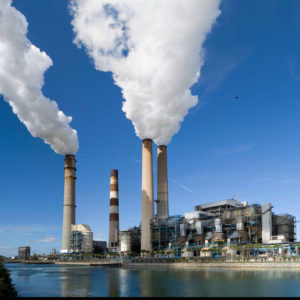ON FREE TRADE, JOBS, AND TECHNOLOGY

We are on the verge of accelerating social changes. How intelligently our government and citizenry will handle these these is an open question, but very concerning.
Let’s start with a few basic factors that must be dealt with. The first is that human beings need work, and I define “work” in the broadest sense as essentially “achievement.” Pursuing this thought, I believe we are genetically programmed to be happiest when we are accomplishing something. We feel good when we are moving positively forward in some area, almost any area – when we are better off today than we were yesterday; when we are useful. It is satisfying, for example, when our bank accounts are growing; when our children are developing; when we are learning useful new information; when we are learning to play an instrument; when we are getting in better shape; when we are progressing in our jobs; when our tennis or golf games are improving; etc. On the other hand, we become restless and dissatisfied when we stagnate. We may even become dangerous.
This brings me to the issue of free trade. Years ago free trade was a wonderful idea. Essentially each country would produce the goods that it was most efficient at and stop producing the goods it was inefficient at. It would then trade with other countries to obtain the goods it needed but was inefficient at making. In the exchange all countries would benefit. All would get more “stuff” than they could if each remained insular and inefficiently made its own goods. If, for example, we were better at making cars than steel and another country was better at making steel than cars, it would benefit both if we made the cars, they made the steel, and we traded. Behind it was the assumption that our workers, who had lost their jobs making steel, would simply move over to take jobs making something else.
Unfortunately, this underlying assumption, which held 50 years ago, no longer holds. Our workers, who may have been inefficiently making steel, may never have the ability to simply transfer over to jobs like designing computers, which our country may be good and efficient at.
The relatively simple jobs, which require a limited degree of intellectual capacity and where workers mostly use their bodies, were plentiful 50 years ago. They are no longer plentiful in this country. Companies have found that these jobs can be done much more economically in countries that have cheaper labor costs and less environmental regulations. So our workers lose their jobs and cannot replace them with equivalent alternative occupations. The old assumptions of transferability of labor no longer hold. Our displaced workers end up either in the unemployment lines or taking several low-paying service jobs in order to maintain a semblance of their former incomes. Some, of course, can be retrained to take higher-paying, more technical jobs, but these are not the mass of workers. Free trade throws too many of our workers into untenable situations. Small wonder so many are stressed, frustrated, and unhappy.
In exchange, however, we get large amounts of cheaper “stuff.” But is it worth the trade-off? Throughout history and up until relatively recently, getting more or even enough “stuff” was the primary objective. People needed things. But now, at least in our country, we have plenty of “stuff,” much of it quite unnecessary. When I walk the isles of a Walmart I am struck by the masses of goods vying for my attention – racks of cheap clothing and accessories, do-dads of every description, gismos that supposedly will make doing the simplest things easier (like electric can openers, etc.), and countless varieties of mouthwashes, shampoos, deodorants, toilet papers, holders, etc. It’s mind-boggling.
It has reached the point where getting more “stuff” is no longer the primary issue. Now the issue is jobs. And we have a balance of trade deficit in the neighborhood of $800 billion. That means we are importing about $800 billion worth of goods and services more than we are exporting. And, of course, this $800 billion worth of “stuff” must be produced by people holding jobs, and these jobs are not in our country. This represents lost American jobs and jobs gained in Mexico, China, Korea, the E.U., etc. Yes, maybe we get more “stuff” at lower cost. But this does not serve our country’s interests. We pay for it in other ways – unemployment benefits, food stamps, housing subsidies, criminality costs, and other means of wealth redistribution. We can supply people with their needs for “stuff, but we can’t supply them with their missing needs for jobs and achievement. And this lack will ultimately lead to enormous social upheavals.
The other factor costing us jobs, of course, is technology and automation, and in the long run, this will prove far more severe and malignant than jobs lost to foreign countries. Everywhere you go you can see tasks that used to be performed by people that are now done by machines. The checkout lines at supermarkets, ticketing at the airport, production lines of robots making cars, phones being answered by machine at most companies, bank tellers replaced by ATM’s. The list is enormous and growing. All of these represent lost jobs. And the list is growing rapidly. Of course this development is more efficient and cost-effective for corporations, but the end result will be people who have an endless supply of “stuff” and a diminishing supply of psychological gratification. In the end it will cause widespread dissatisfaction and an increasing demand for the products of the drug companies. Very unhealthy.
There is talk about “income inequality.” This term has been created by politicians in order to produce an atmosphere of antagonism between the middle/lower classes and the affluent. It infers that the affluent have somehow unjustly absconded with wealth that should rightfully have gone to the middle and lower classes. It is designed to cause anger in the lower classes, pit them against the wealthy, and get certain politicians votes.
The terminology of “income inequality” disturbs me because it is designed to produce class warfare. There is, of course, a problem with our distribution of resources, but it need not be termed “income inequality.” The proper way to term it would be, “the middle and lower classes need to make more money.” The wealthy are not taking it from them. They are not getting it because their bargaining power has been reduced by foreign competition and advances in technology, so they can’t force businesses to pay them more, the way they could years ago.
There are no “good guys” or “bad guys” here. There are just self-interested guys. Labor wants to be paid as much as possible, and businesses want to make as much profit as possible. It is the nature of our free-market system. It is largely a “zero sum” situation where both sides use as much leverage as they have to strengthen their positions. Neither is evil. Both are self-interested. And the government will necessarily have to redistribute income in some way to help the middle classes. But it’s not necessary to infer that the wealthy are screwing everybody by pointing at them and bandying about the term “income inequality.”
In the short run the middle class working people will be helped by reducing foreign competition to raise wages and to keep more jobs in the U.S. President Trump is correct, in my uneducated opinion, in renegotiating international trade agreements so that we are not buying more goods and services from other countries than we are selling. I believe he is also correct in pressuring companies to build their plants in our country rather than in foreign countries. And finally, I think he is wise to reduce immigration, both legal and especially illegal, so American workers do not have their wages driven down by an increasing supply of labor.
I would also like to see the government supplement, in some intelligent way (which may be impossible), the wages of the working middle class so that they make a living wage and a more comfortable one. It would be best if they have an incentive to work rather than an incentive to be on the dole. To me, this would be preferable to raising the minimum wage. Raising the minimum wage incentivizes employers to reduce employment and replace employees with automation. Lower wages (supplemented for the workers by the government giving them tax credits or just cash) incentivizes employers to hire more employees. And in the long run, as automation kicks in more and more, jobs are going to be our biggest problem by far.
The bottom line is that I am concerned about the impending social issues that will arise from the gradual and continuous loss of jobs for the middle class and hope we will, in the future, have leaders intelligent enough to solve these problems or at least keep them to a minimum.
Allen Fox, Ph.D. c 2017, all rights reserved
Notice: link_pages is deprecated since version 2.1.0! Use wp_link_pages() instead. in /home3/allenfox/public_html/allenfoxtennis/wp-includes/functions.php on line 3896
If you enjoyed this post, please consider to leave a comment or subscribe to the feed and get future articles delivered to your feed reader.
Warning: compact(): Undefined variable $limits in /home3/allenfox/public_html/allenfoxtennis/wp-includes/class-wp-comment-query.php on line 853
Warning: compact(): Undefined variable $groupby in /home3/allenfox/public_html/allenfoxtennis/wp-includes/class-wp-comment-query.php on line 853
Deprecated: ltrim(): Passing null to parameter #1 ($string) of type string is deprecated in /home3/allenfox/public_html/allenfoxtennis/wp-includes/wp-db.php on line 2818
Warning: get_comment(): Argument #1 ($comment) must be passed by reference, value given in /home3/allenfox/public_html/allenfoxtennis/wp-includes/class-wp-comment-query.php on line 458
Warning: compact(): Undefined variable $limits in /home3/allenfox/public_html/allenfoxtennis/wp-includes/class-wp-comment-query.php on line 853
Warning: compact(): Undefined variable $groupby in /home3/allenfox/public_html/allenfoxtennis/wp-includes/class-wp-comment-query.php on line 853
Deprecated: ltrim(): Passing null to parameter #1 ($string) of type string is deprecated in /home3/allenfox/public_html/allenfoxtennis/wp-includes/wp-db.php on line 2818
Warning: get_comment(): Argument #1 ($comment) must be passed by reference, value given in /home3/allenfox/public_html/allenfoxtennis/wp-includes/class-wp-comment-query.php on line 458
Warning: compact(): Undefined variable $limits in /home3/allenfox/public_html/allenfoxtennis/wp-includes/class-wp-comment-query.php on line 853
Warning: compact(): Undefined variable $groupby in /home3/allenfox/public_html/allenfoxtennis/wp-includes/class-wp-comment-query.php on line 853






Allen, I too am concerned for future generations and believe your analysis of our economy is right on.
Thank you for sharing your take on these issues of great concern which have yet to see the light. SC
Thanks Scott!